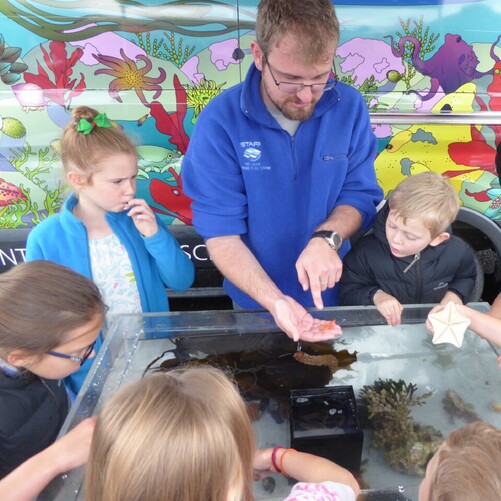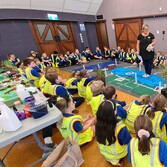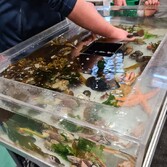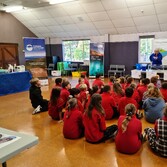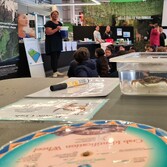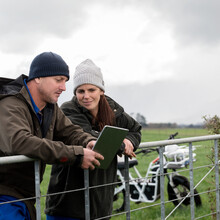Aquavan Action
Gore-Waimumu and Waihopai Catchment Groups
Catchment Group:
Gore-Waimumu and Waihopai Catchment Groups
Project:
Aquavan Action
Funding:
$39,650
Period:
Feb 21 to Dec 21
Project Description
The Aquavan is a purpose-built vehicle owned by the New Zealand Marine Studies Centre (University of Otago), which transports marine animal and plant collections for teaching and research out into the community. It has chilled recirculating seawater tanks and a mobile touch tank to support hands-on learning and to create awareness of the connectivity between river health and the coastal environment. This unique resource, combined with an Education Team, ran the ‘Discovering our Catchment and Coastal Connections Education Programme’, engaging hundreds of Year 5 to Year 8 students, teachers and parents in schools throughout Southland.
The Aquavan allows students to investigate the impact we have on our coastal and freshwater environments, learn about catchments, and further their science skills through hands-on learning. Alongside the educational programme, three successful community events allowed members of the public to meet Catchment Group representatives and other agencies involved with looking after Southland’s waterways.
Resources
Aquavan Flyer and Education Pack Discovering our Catchment and Coastal Connection 2021
Objectives
- To improve understanding of connections between inland and marine ecosystems among school students and the wider community and to develop skills for environmental action.
- To create stronger and more positive links between urban and rural communities, and to raise awareness of the work being undertaken in Southland to help look after our waterways from mountains to sea.
Outcomes
- Increased understanding of catchments, indigenous biodiversity, interconnection of waterways, ecosystem services, and the ecological and cultural values of the freshwater and coastal environments, among young people and the wider community.
- Raised awareness of the different stakeholders involved in looking after our waterways through community events.
- More than 1,350 students from 21 schools across Southland have participated in this programme.
